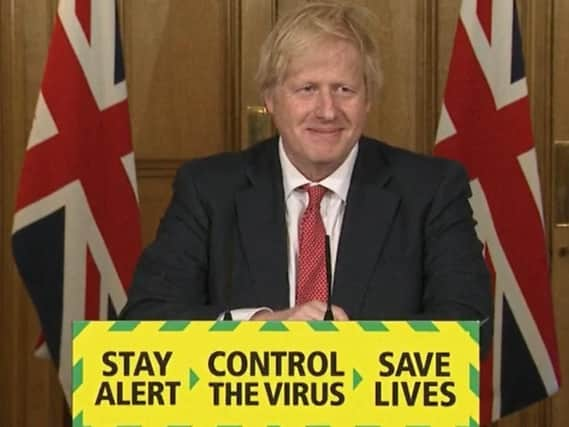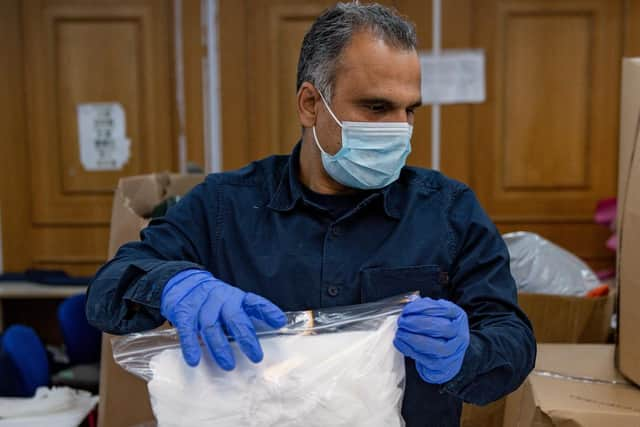Public inquiry into Government’s handling of coronavirus crisis is inevitable - Ben Harrison


And it is likely to enter the history books as the biggest ever witnessed in the UK, dwarfing those that cast forensic scrutiny over the Iraq War and the Grenfell Tower fire.
For the lawyers who share a special interest in public inquiries, like myself, the questions are clear: What will be the focus of any inquiry? What will its terms of reference include? Crucially, will any inquiry be of sufficient scale and breadth to ascertain whether the UK’s preparedness for, and response to, coronavirus was adequate?
Advertisement
Hide AdAdvertisement
Hide AdYet for those whose lives have been impacted by coronavirus on an unimaginable scale, including many thousands of people here in Yorkshire, a different set of far-reaching questions will be more immediate.


The issues to be examined by an independent public inquiry look numerous but, at this stage, it is uncertain which will ultimately prove so catastrophic that they will fall for closer scrutiny.
That said, the failure to provide frontline NHS workers with sufficient personal protective equipment (PPE) seems so unforgivably inadequate that it must form a cornerstone of any future investigation. This is particularly so when one considers that early evidence from China suggested that the level of viral load to which a person is exposed can mean the difference between life and death.
Concerns about the Government’s response to date are mounting in ever-increasing numbers – far too many to list here, yet some seem so illogical that they are worthy of highlighting:
Advertisement
Hide AdAdvertisement
Hide Ad1. The apparently dilatory approach to recognising the need for, and engaging in the procurement of, sufficient numbers of tests and PPE.
2. The decision to recruit retired clinicians back into the NHS, flying in the face of all data indicating that the older that a person is, the more likely they are to experience a more severe illness from coronavirus.
3. The disproportionate manner in which BAME communities appear to be being affected. Recent statistics suggest that even when socio-economic factors are accounted for, a black person is almost twice as likely to die of coronavirus as a white person. When they are not, that figure rises to four times as likely.
4. The decision to de-prioritise certain areas of healthcare deemed non-urgent. One cannot help but wonder whether the majority of deaths will come from coronavirus itself or from people, such as cancer patients, who didn’t receive timely intervention and care.
Advertisement
Hide AdAdvertisement
Hide AdAlarm bells have also started ringing following the announcement plasma will be taken from people who have recovered from coronavirus and administered to unexposed people, all part of a trial to test whether the recovered person’s antibodies might afford immunity. I have been proud to represent a number of haemophiliacs in the UK-wide Infected Blood Inquiry.
This is examining the circumstances under which they came to be infected with and exposed to HIV, Hepatitis C and vCJD through use of blood products administered by the NHS.
One pertinent fact to arise is the extent to which the plasma required to make blood products is still required to be sourced from donors. It was – until September 2019 at least – sourced from overseas because of the enhanced risk of vCJD from the UK donor panel.
We have not seen the scope of the clinical trials currently being entered into but, if the risk of vCJD from UK-sourced plasma does not form part of the consideration, then extremely serious questions must not only be asked, but answered.
Ben Harrison is Head of Public Law at Leeds-based Milners.
Advertisement
Hide AdAdvertisement
Hide AdEditor’s note: first and foremost - and rarely have I written down these words with more sincerity - I hope this finds you well.
Almost certainly you are here because you value the quality and the integrity of the journalism produced by The Yorkshire Post’s journalists - almost all of which live alongside you in Yorkshire, spending the wages they earn with Yorkshire businesses - who last year took this title to the industry watchdog’s Most Trusted Newspaper in Britain accolade.
And that is why I must make an urgent request of you: as advertising revenue declines, your support becomes evermore crucial to the maintenance of the journalistic standards expected of The Yorkshire Post. If you can, safely, please buy a paper or take up a subscription. We want to continue to make you proud of Yorkshire’s National Newspaper but we are going to need your help.
Postal subscription copies can be ordered by calling 0330 4030066 or by emailing [email protected]. Vouchers, to be exchanged at retail sales outlets - our newsagents need you, too - can be subscribed to by contacting subscriptions on 0330 1235950 or by visiting www.localsubsplus.co.uk where you should select The Yorkshire Post from the list of titles available.
Advertisement
Hide AdAdvertisement
Hide AdIf you want to help right now, download our tablet app from the App / Play Stores. Every contribution you make helps to provide this county with the best regional journalism in the country.
Sincerely. Thank you.
James Mitchinson